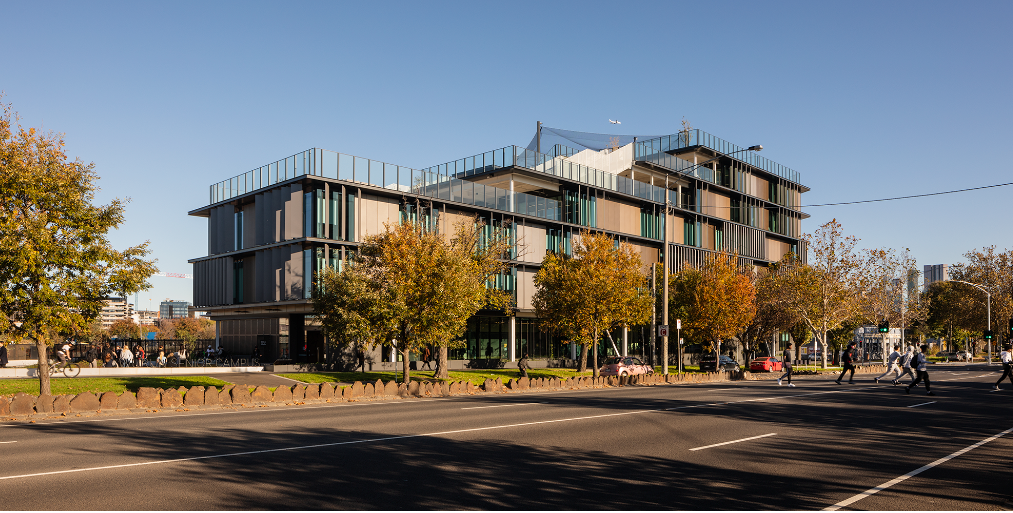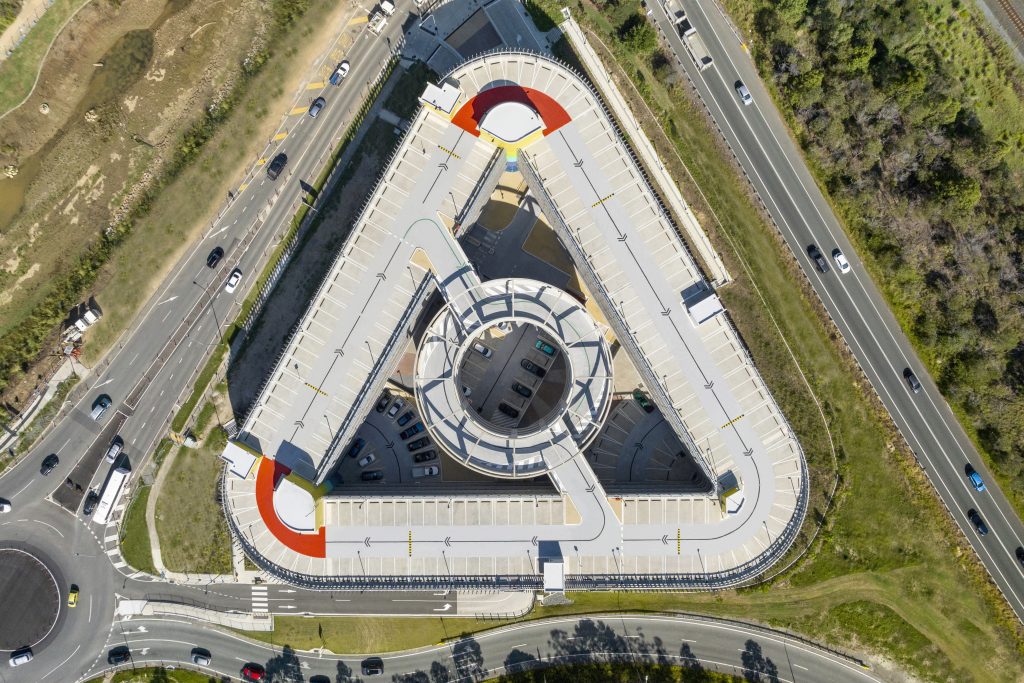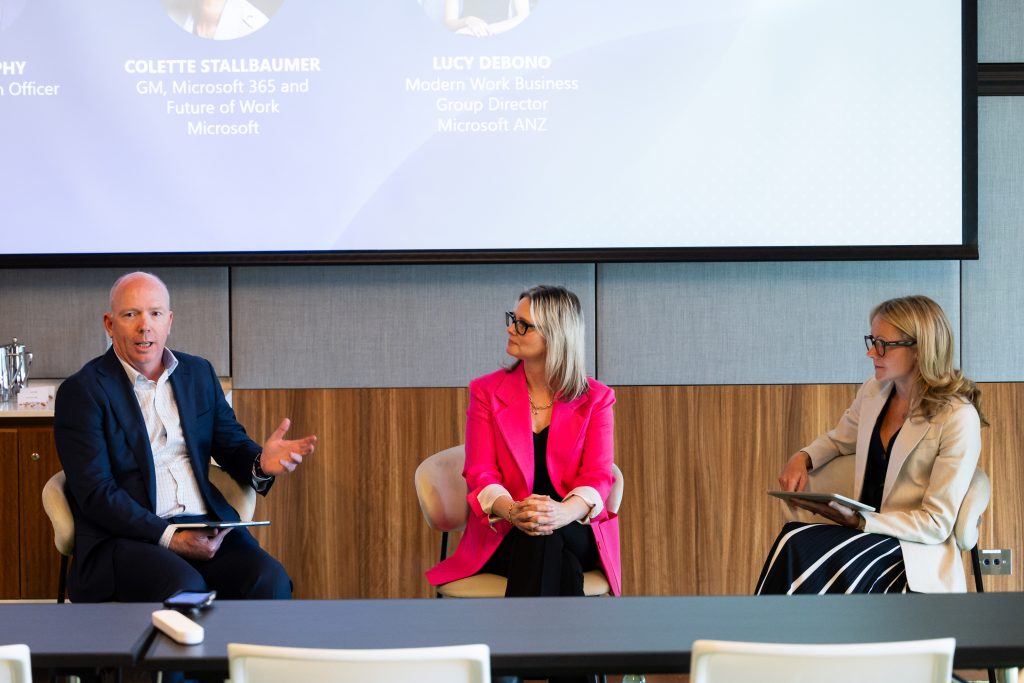
GHD-designed Wurun Senior Campus, Fitzroy, Victoria | Photo credit: Trevor Mein
GHD’s productivity surge: How AI is reinventing the RFP process in construction and engineering
GHD, a global leader in design, engineering and environmental services, is charting a bold course for AI adoption. Its proactive stance is not just focused on using AI for productivity gains, but on seizing the opportunity to tackle some of the world’s most complex challenges.
“We view AI in two dimensions”, says Paul Murphy, Chief Information Officer at GHD. “First, we are already seeing it drive efficiencies which enable our people to focus on where they can create more value for themselves and our clients. Second, we believe AI opens doors to solving global challenges that were previously beyond the scope of human capacity, especially in areas like the environment and major infrastructure.”

As Murphy explains, GHD believes generative AI has the potential to unlock new solutions for tackling critical issues such as traffic management and transportation networks. “This could help reduce greenhouse gas emissions or the death toll associated with traffic accidents.”
The company’s forward-thinking approach led to the launch of its AI Centre of Excellence (CoE) in June 2023. The CoE fuses GHD’s deep industry expertise with cutting-edge AI technology and data science to empower clients to fully harness AI’s potential. For example, the company has developed an AI “librarian” to help access client information, extract insights, meet Freedom of Information requests, and support ESG reporting.
GHD’s dedication to AI is not just about internal gains. It is also aiming to broaden industry knowledge and understanding of this rapidly evolving technology. The company’s recent report on generative AI offers a comprehensive analysis of its transformative potential across various sectors. The report also emphasises the urgency for organisations to adapt to the rapid growth of generative AI, and projects a five to six per cent increase in global gross domestic product over the next decade due to these advancements.
GHD’s professional services expertise in sectors such as water, energy, resources, environment, property and buildings, and transportation means it is in a strong position to leverage AI in a range of innovative ways. At the heart of its AI-centric initiatives is a commitment to ensuring that the company can maximise the benefits of this technology across all facets of its operations.
Embracing the future with Copilot for Microsoft 365
In September 2023, GHD joined the Copilot for Microsoft 365 (M365) Early Access Program (EAP), driven by its desire to be at the forefront of AI technology. Andrew Kaddatz, Chief Technology Officer at GHD, says the Copilot EAP provided a unique and exciting opportunity to experiment with generative AI and understand its impact on day-to-day activities.
GHD ensured it had a well-managed data environment with robust access controls before rolling out its 300 Copilot licences. This preparation was vital to using the solution effectively while maintaining data security and integrity.

Kaddatz says understanding employees’ awareness and attitudes towards generative AI was also crucial in fostering a comfortable and productive environment for them to explore Copilot’s capabilities. This informed GHD’s roll-out strategy to encourage free exploration of AI, moving away from traditional, prescriptive training methods and helping employees become comfortable with Copilot through natural language interaction.
“We’ve found that it typically takes three to four weeks for our people to become proficient with Copilot and to start having meaningful conversations with one another about potential use cases,” says Kaddatz.
Individual productivity gains driving meaningful organisational impact
GHD recently surveyed Copilot users and found that 41 per cent are saving time in their workday, with 29 per cent saving over 30 minutes and 12 per cent saving more than an hour. In addition, 75 per cent of users feel more efficient and 45 per cent find their work more rewarding when using Copilot.
One survey respondent said they used Copilot to efficiently analyse two request-for-proposal documents, identifying key differences in the scope of project deliverables. This streamlined approach reduced the review time from hours to just 15 minutes, and ensured no critical details were overlooked.
Individual time saving is significant, but it’s even greater when you see how it becomes meaningful to the organisation. If you compound those individual time savings to the entire workflow for our response [RFPs, RFQs etc] processes, you can see how that could translate to a 20-30% reduction in the total time – and cost – that GHD spends working on responses.
– Paul Murphy, CIO
GHD also participated in Microsoft’s Copilot research program, which found that the company has far more users of Copilot in Microsoft Word than most other organisations participating in the EAP.
“We’re an organisation that relies heavily on written work, which spans from writing proposals, submissions, specifications, to reporting for various infrastructure projects. The overwhelming feedback on Copilot in Word has been that people really value the ability to go from a blank sheet to something meaningful in a fraction of the time,” says Murphy.
For example, one employee produced governance reporting in an hour instead of weeks when they used Copilot to combine Word and Excel data from several sources.
GHD employees have also reported significant time savings using Copilot’s recap function in Teams and the solution’s ability to summarise emails in Outlook.
“Using a productivity GenAI technology like Copilot is not just about doing the same things faster. It’s allowing people to be themselves a lot more in meetings and to engage in richer discussions after meetings,” says Murphy. “It’s really changing how we think about communication and collaboration in the workplace, as well as innovation.”
When we consider the potential of saving 10 hours a month, the question naturally arises: What more could we achieve? What pressing global challenges could we collectively address with that reclaimed time? These promising indications of impact inspire us to explore the possibilities and dedicate our efforts to meaningful solutions.
– Paul Murphy, CIO
The road ahead with Copilot
As GHD continues its journey with Copilot, the focus has shifted to mapping out scenarios and use cases that show substantial value. The company is also working on enhancing backend processes to maximise the benefits.
“We’re now looking at how to scale from our initial 300 Copilot participants to a larger number and ensuring we overcome early adoption challenges, especially around data quality and sensitivity management,” says Murphy.
In addition, Murphy envisions greater collaborative opportunities with partners like John Holland, a construction company that’s also using Copilot to unlock operational efficiencies.
“In an interconnected ecosystem like ours, the ability to use Copilot in a shared space with our partners will be very valuable,” he says. “It represents a significant step towards more integrated, efficient and responsible industry practices.”















